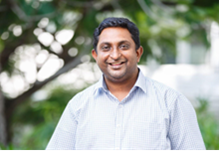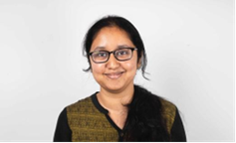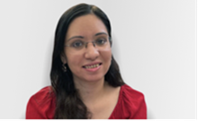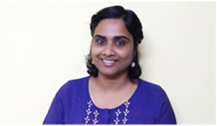
Last date for nomination: January 16, 2025
Course Objective
Development of strategy plan that is tailored for NGO leaders and key team members, including board members, seeking to develop and enhance organizational strategies.Course Outcomes
The following topics will be covered during the 2-day session.Organizational strategy:
- Introduction to Portfolio Analysis and McKinsey 7S Framework;
- Individual exercise for each participant to apply the frameworks;
- Introduction to how one can put down a strategy;
- Individual exercise for each participant to put down some elements of their strategy.
Outcomes after the workshop are:
- Increased knowledge and understanding of organizational capacities;
- Increased confidence among participants/NGO leaders and staff;
- Skills and competencies gained by the participants/NGO leaders and staff;
- Improved mindset of the Founders/leaders toward capacity building;
- Thought partnership for the NGO leaders in their journeys.
Pre-requisites
- NGOs in the age group of 2-5 years
- Across sectors and geographies
- Assess those who are keen and confident of working on capacity building for their organization in 2024-25 (High-intent NGOs)
- Assess the capacity level of the organization for the specific topic of workshop. For e.g. If the workshop is on Setting up a Board of Advisors, we would like to select NGOs that have a basic Board structure in place, so that they can gain the most from the workshop
Expected Commitment
Total 8-10 hours / workshopCourse Details:
- Pre-work: Reading or exercise material will be shared with all the participants, which would set them up for learning during the workshop, on the topic so selected.
- Pre-survey: The pre-survey helps to gauge the knowledge, skills and confidence levels of the participants and their organizations BEFORE the workshop.
- Workshop: The key content on the topic so selected will be delivered in a 2-3 hour long workshop over two days.
- Post-survey: The post-survey helps to gauge the knowledge, skills and confidence levels of the participants, and their organizations, AFTER the workshop. The difference in the same vs. the pre-survey is the incremental impact of the Atma workshop.
| Phases | Module | Activity / No. of hrs | Mode of Delivery | Location |
|---|---|---|---|---|
| Phase 1 | Prework | Pre-survey: To understand where their current knowledge and understanding of the topics stand.
Pre-work: To make the participants reflect on their present state of capacity on the topic of the workshop. This will include readings and/or exercises. |
Online | Virtual |
| Phase 2 | Coursework | During the workshop (2 days)
Between the workshops - Once to assess needs and completion of post-work between the three workshops |
Zoom | Virtual |
| Phase 3 | Feedback | End of Day 1
End of Day 2 Post-survey - within one week of the workshop |
Zoom Platform | Virtual |
| Phase 4 | Ongoing support between /during modules | The participating NGO is open to reach out to Atma. Atma is open to conducting offline calls (maximum five) with NGOs in between the three workshops. | Virtual | |
| Phase 5 | Post-work | Six months after the workshop, we will do a check-in to gauge medium-term impact of the workshop in terms of changes made by the participants in their organizations. During this period, the NGOs will be encouraged to reach out to Atma for any support they need. | Virtual | |
About The Resource Organization
Atma is an Accelerator for Education NGOs and Social Enterprises in India. Atma was founded in 2007 to support and strengthen education organizations. We believe that these organizations can lead the way in reforming education. However, faced with a severe lack of financial and human resources, they are unable to realize their true potential. In this context, Atma supports NGOs in their capacity building journey across nine organization development areas. It currently operates across India.Wesbite: https://atma.org.in/
Course Facilitator

|
Vernon is Chief Programme Officer at Atma and leads the Program vertical. He has two decades of experience in the development sector with leadership experience in helping organizations design and operationalize impactful, scalable and sustainable projects. He is deeply passionate about education. He strives to enable individuals to gain access to quality education, and to rise to the challenges of a developing yet globally competitive country. He is excited to drive this process through the capacity building of NGOs at Atma. Before joining Atma, he worked at the British Council. He also has experience in designing and delivering large-scale transformation projects in Education with State governments in India. He has worked in partnership development, relationship building, strategy, operations, governance, and project management as well. |

|
Aishwarya is a Lead Consultant at Atma. Here she manages the Knowledge, Impact and Programs (KIP) vertical. With a degree in law from NALSAR University of Law, and a PGDM from IIM Lucknow, she has close to eight years of experience in the corporate and non-profit sectors. During her time at Atma, she has worked on supporting the capacity development journeys of Atma's NGO partners across areas such as strategy, fundraising, and monitoring and evaluation. |

|
Kavita works with Atma as a Program Consultant to provide support on capacity-building projects. She has over 12 years of experience in the development sector in managing diverse roles. These include providing mentoring and capacity-building support to nonprofits and social enterprises, leading and executing programs, and building organizational processes. She has done her MBA in Human Resources. Previously, she has worked with EdelGive Foundation, where she managed the corporate employee volunteering program, and with UnLtd India, where she managed the Incubation program, along with mentoring social entrepreneurs. She has also worked with different NGOs as a consultant. Her key skill areas include strategic planning, financial budgeting, impact measurement, process development, and human resources. |

|
Vaishali has been working in the development sector for the past seven years. She brings grassroots experience and learnings on issues of child rights, violence against women, and education. She holds a Master's in Education from TISS, Mumbai. She is interested in law, caste and gender. |
Testimonials
Amvalika Senapati, Deputy Director - Advocacy, Shishu Sarothi Centre for Rehabilitation & Training for Multiple Disability
“ The workshop gave valuable insights. The reflective questions and prompts in the templates will help to guide our thinking, allowing us to analyze our current situation, set clear goals, and develop actionable strategies for charting out the organization's future direction.”
Ghatit Laheru, Director, Khamir
“It was a good experience overall to understand various models of organisation that help for overall strategic planning. Being in the remote location, we often do not have access to such resources. Understanding of these things will help us while doing annual planning for the organisation.”
“ The workshop gave valuable insights. The reflective questions and prompts in the templates will help to guide our thinking, allowing us to analyze our current situation, set clear goals, and develop actionable strategies for charting out the organization's future direction.”
Ghatit Laheru, Director, Khamir
“It was a good experience overall to understand various models of organisation that help for overall strategic planning. Being in the remote location, we often do not have access to such resources. Understanding of these things will help us while doing annual planning for the organisation.”


